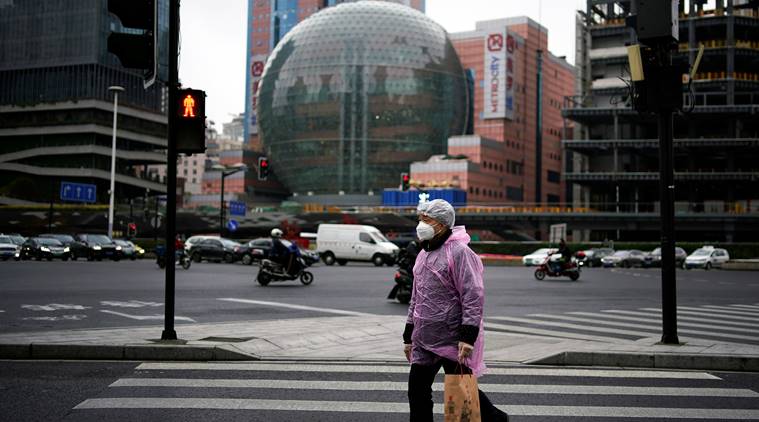China’s manufacturing, retail, investment suffer historic slump
Coronavirus pandemic: While there are increasing signs that companies and people are getting back to work in March, the economy is still not back to normal.
 The streets of Shanghai, China, wear a deserted look. (Reuters Photo: Aly Song)
The streets of Shanghai, China, wear a deserted look. (Reuters Photo: Aly Song)
China suffered an even deeper slump than analysts feared at the start of the year as the coronavirus shuttered factories, shops and restaurants across the nation, underscoring the fallout now facing the global economy as the virus spreads around the world.
Industrial output plunged 13.5% in January and February from a year earlier, versus a median estimate for a 3% contraction. Retail sales fell 20.5% in the period, compared to a projected 4% fall. Fixed-asset investment dropped 24.5%, versus a forecast 2% decline. The unemployment rate jumped to 6.2%, the highest on record.
Gross domestic product is now all but certain to contract in the first quarter compared to the same period last year — the first time that has happened since comparable data begins in 1989.
“Covid-19 made the economy stop, from factories to spending,” said Iris Pang, ING Bank NV in Hong Kong. “As the coronavirus spread to almost everywhere, global demand and global supply chains will take a hit and will feedback to China’s manufacturers and exporters in March and April.”
The outbreak of deadly viral pneumonia in Wuhan dramatically worsened in January, prompting China to lockdown Hubei province, extend holidays and restrict travel and business across the country. That brought much of the nation’s economic activity to a halt in February, undercutting a stabilization seen in December.
While there are increasing signs that companies and people are getting back to work in March, the economy is still not back to normal.
Even as governments in China and some other Asian nations look to be getting their outbreaks under control, the coronavirus is now spreading rapidly in Europe, the US and other parts of the world. That will likely hit demand for Chinese exports, extending the damage to firms and the economy.
Also read | South Korea wants to show the world how to tackle the coronavirus
“China is bottoming out. But it’s not going to be a V-shaped rebound,” said Raymond Yeung, chief China economist at Australia & New Zealand Banking Group in Hong Kong.
The People’s Bank of China bank acted on Friday to support the economy, providing banks more money to lend by cutting the amount of cash they must place in reserve at the central bank. It refrained from cutting the interest rate of its medium-term loans on Monday in step with the Federal Reserve. The move signals it’ll maintain a targeted, measured easing approach for now, in spite of the bad economic data.
“The data are awful,” said Macquarie Group Ltd Chief China Economist Larry Hu. “It’s clear that coronavirus is both a supply shock and a demand shock. It hurts both internal and external demand. It brings both inflation and deflation pressure. As such, we don’t expect massive stimulus coming out anytime soon, but China will stay in the current rate-cutting cycle.”



- 01
- 02
- 03
- 04
- 05




























